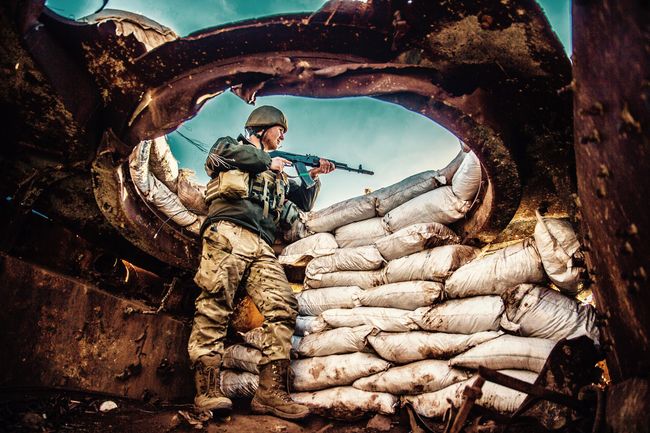On October 4, the president introduced to parliament a bill commonly known as “the bill on the reintegration of the occupied territories.” Prior to that, representatives of the opposition Self-Reliance faction proposed their own “occupied territories” bill, which has received a mixed assessment. According to experts, the proposals of Self-Reliance only stated the fact of occupation, but did not propose an algorithm for restoring the territorial integrity and sovereignty of this country. The Presidential Administration and the National Security and Defense Council developed their own version of the bill, which, while not having been officially published yet, sparked a lot of discussions that were sometimes based on unfounded assumptions. On October 3, Deputy Speaker of the Verkhovna Rada Oksana Syroid, who belongs to the Self-Reliance faction, published one of the versions of the reintegration bill and expressed a number of concerns, in particular regarding “legalization of the Minsk Agreements and the need for their implementation; creation of a Joint Operational Headquarters of Donetsk and Luhansk Regions which will issue cross-frontline trade permits; the use of armed forces in peacetime.” In her turn, Iryna Herashchenko said that same day that Syroid’s publication was not of the bill’s final version, and therefore it would not make sense to discuss it.
At the same time, the president proposed to delay indefinitely the entry into force of the Law “On Special Order of Local Government in Certain Districts of Donetsk and Luhansk Regions,” which was passed for a three-year term in October 2014 and would expire on October 18. In turn, representative of Ukraine in the trilateral contact group Olha Aivazovska also stated that if the law on special order of local government in the Donbas did not have its term extended, we would face “serious problems regarding the sanctions package imposed on the Russian Federation and negotiations both in the Minsk and in the Normandy format.” According to Aivazovska, the Law “On Special Order of Local Government” is the basis on which it is possible to negotiate any matter. In particular, she said: “We can extend it for a year to provide a basis for communication on UN peacekeepers, lethal weapons, negotiations in various formats. They have finally started working in our favor lately, especially the bilateral Russia-US talks.”
ITEM BY ITEM...
On October 3, the Verkhovna Rada hosted a meeting of the Minsk Platform, at which the deputy chief of the Presidential Administration Kostiantyn Yelisieiev presented his vision of the peacekeeping mission to the Donbas and the concept of the law on state policy on the restoration of state sovereignty over the temporarily occupied territories of Donetsk and Luhansk regions. The text of this bill was not disseminated, but MPs heard an outline of the conceptual points contained therein. At the same time, representatives of various factions voiced their opinions on the bill. It should be noted that the presence of every faction’s representative at the Minsk Platform is not strictly obligatory, therefore not all representatives were present. The platform serves as a forum for informing MPs about the positions taken by the president on a number of issues, but no decisions are taken there.

Photo by Anna KUDRIAVTSEVA
International law expert Volodymyr Vasylenko was invited to the meeting of the Minsk Platform, as he had participated in drafting the bill.
“The purpose of this bill is to clarify the main elements of Ukraine’s position on the issue of repelling armed aggression of the Russian Federation and overcoming its consequences,” Vasylenko commented for Den. “The main elements of the latest version of the bill are as follows: 1) Russia is clearly defined as a state that committed a crime of armed aggression against Ukraine, violating its international obligations under important international agreements. 2) A consequence of this act of aggression by Russia has been temporary occupation of parts of Ukraine’s territory. 3) Non-recognition of this seizure of parts of Ukraine’s territory and confirmation of the inalienable sovereign right of Ukraine to restore its territorial integrity. 4) Definition of the components of Russia’s military organization through which its aggression against Ukraine is carried out. Moreover, regular illegal armed formations, armed gangs, groups of mercenaries that are created, subordinated, controlled and financed by Russia are recognized as such components as well. 5) Definition of the Russian occupation administration, whose constituent parts include its government bodies operating within the temporarily occupied territories and self-proclaimed bodies controlled by Russia that have usurped government functions in the temporarily occupied territories of Ukraine. 6) Confirmation of the inalienable sovereign right of Ukraine to individual and collective self-defense against aggression in accordance with Article 51 of the UN Charter and the national legislation of Ukraine. This means that the term ATO is not to be used anymore, because Ukraine is waging a war of self-defense against armed aggression, and is not fighting some terrorists.”








